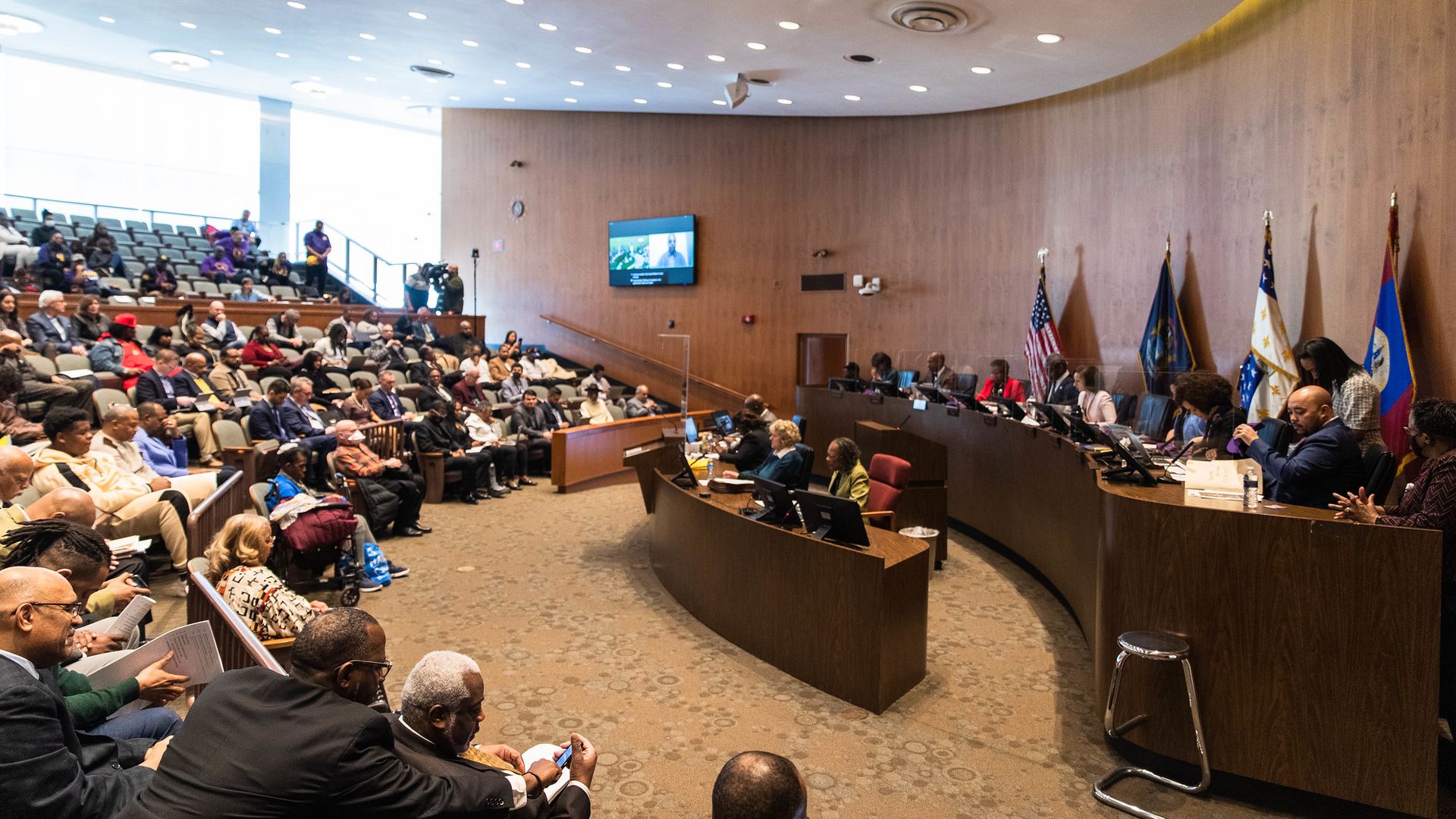District Detroit developments move forward
Add Axios as your preferred source to
see more of our stories on Google.

A packed auditorium watched City Council yesterday at city hall. Photo: Courtesy of the city of Detroit, via Flickr
The $1.5 billion District Detroit project is moving forward with hundreds of millions in controversial tax abatements.
Why it matters: The vote is another benchmark in what is now a decade-plus long debate between conflicting opinions about how to bring Detroit into a prosperous, equitable future.
- Developers set to receive $800 million in state and local public financing is a reflection of the pro-big business perspective.
Driving the news: The highly debated plan to build or renovate 10 buildings in downtown and Midtown received nearly unanimous votes in favor after intense midsession negotiations between City Council and developers yesterday, with only Council President Mary Sheffield saying "nay" to pieces of the deal.
What happened: The pivotal votes were delayed last week so council members could take time to get the Ilitch family and Stephen Ross, the developers, to agree to more community benefits.
- Those negotiations spilled over into yesterday's voting session in a rare, somewhat chaotic display.
- Andrew Cantor of Ross's Related Cos. agreed to voluntarily commit the developers to require 30% of the dollar value of the project's contracts go to Detroit-based businesses — a sudden change that required city staff to literally run and draft new amended language to put in front of Council.
Between the lines: In response to council requests, developers and the city agreed to prioritize longer-term residents of 10 years or more for spots in the developments' 139 apartments designated "affordable." Previously, it was just three years of residency.
- They will also donate $3.5 million over 10 years to Detroit's affordable housing fund, on top of $12 million in previously agreed-upon financial benefits.
- In return, the developers get $133 million in Detroit tax breaks.
- It's similar to how Dan Gilbert's Bedrock agreed to more benefits to secure a "yes" for Hudson's site tax breaks last July.
Yes, but: Other asks got shot down, like Sheffield's request for a 2% surcharge on District Detroit area event tickets to benefit the city. As was her wish for mandating developers hire a certain amount of disadvantaged local businesses.
What they're saying: "A better job could have been done to represent the best interests of the people, and the Ilitches still would have gotten their deal," community advocate and former City Council candidate Nicole Small tells Axios.
- Small was critical of the council's negotiating, saying battles for more affordable housing, jobs for Detroiters and help with seniors' transit needs could have been won.
The other side: "If we don't build it here, nobody will do it for us," said Council Member Fred Durhal III, who voted in favor because he wants to show that the city is a growing, welcoming place for business.
What's next: The $616 million "transformational brownfield" plan, which allows large-scale developers to capture certain Michigan taxes over 35 years, still requires state-level approval in late April.
- There's also final approvals for the city-level tax incentives.
- The developers expect to start construction this summer.
